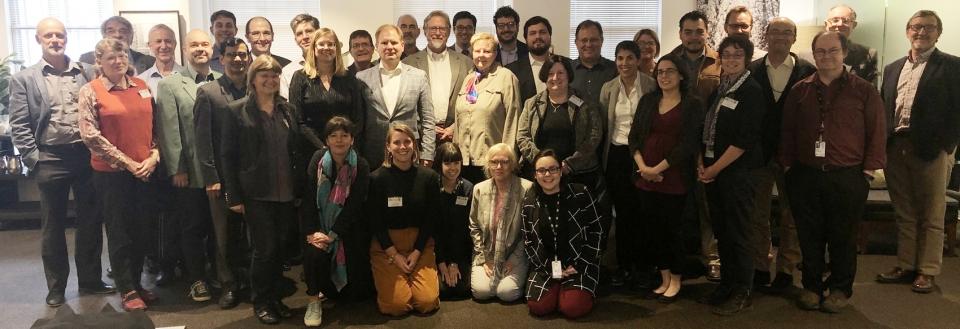London Group Holds 25th Meeting in Melbourne, Australia

The 25th London Group meeting on Environmental Accounting was held in Melbourne on the 7th– 10th October 2019. The meeting hosted over 50 delegates from over 30 organisation around the world to share experiences in the development and implementation of environmental accounts.
The meeting opened with a traditional welcome to country by local Wurundjeri elder Uncle Bill Nicholson, who outlined the connection local indigenous people had to the Melbourne area. Nancy Steinbach, the chair of the London Group, described how the London Group has contributed to the implementation of the world-wide implementation of environmental-economic accounting around the world by bringing together experts to share ideas and experiences on issues related to the compilation of these accounts.
The agenda of the 4-day meeting provided delegates with an opportunity to discuss a wide range of issues related to the System of Environmental-Economic Accounts (SEEA). Some of the specific topics discussed included:
- Key topics on the SEEA-Central Framework (SEEA-CF), including identifying fossil fuel subsidies, classifying environmental activities, issues related to the measurement and classification of natural reserves and the use of environmentally extended input-output tables.
- Updates on the SEEA – Experimental Ecosystem Account (SEEA-EEA) revisions process, including an update on the revision process, discussion on thematic accounts for urban ecosystems and oceans and exploring the conceptual linkages between the SEEA-EEA, SEEA-CF and System of National Accounts.
- How big data is used to compile SEEA based ecosystem accounts, and how do we assess and ensure quality of these data sources.
The meeting also hosted a ‘World Café’ session on the worldwide implementation of SEEA, which focused on topical applications like Land Accounts, Waste Accounts and the circular economy and use of the SEEA Agriculture, Forestry and Fishing framework. Presentation materials are available on the meeting webpage.
Delegates also had an opportunity to see some of the local sights and learn more about the local indigenous history of Melbourne through a walking tour.
